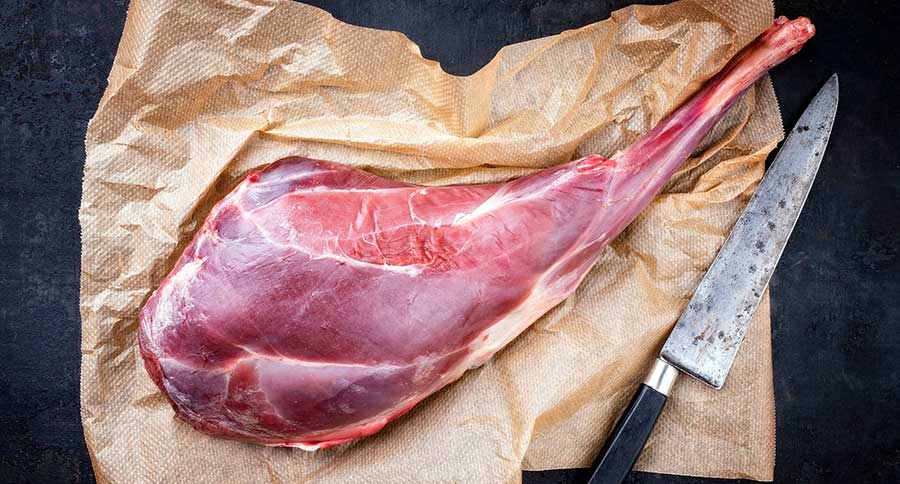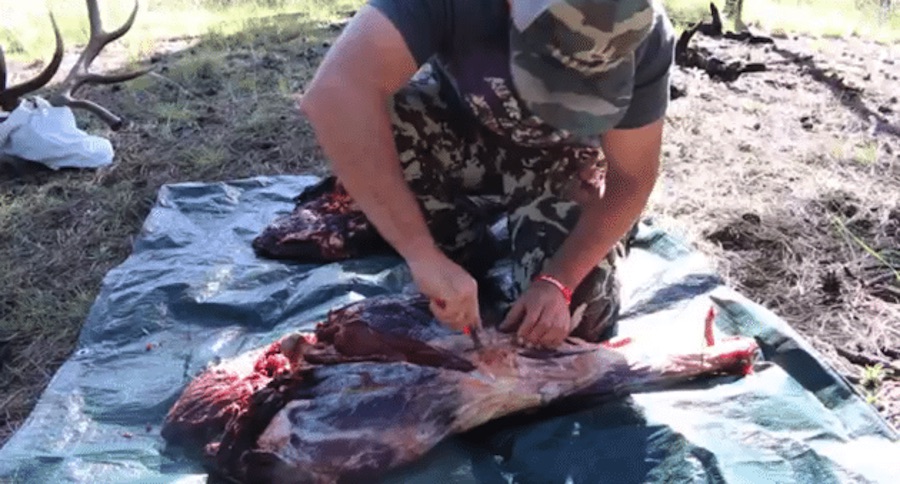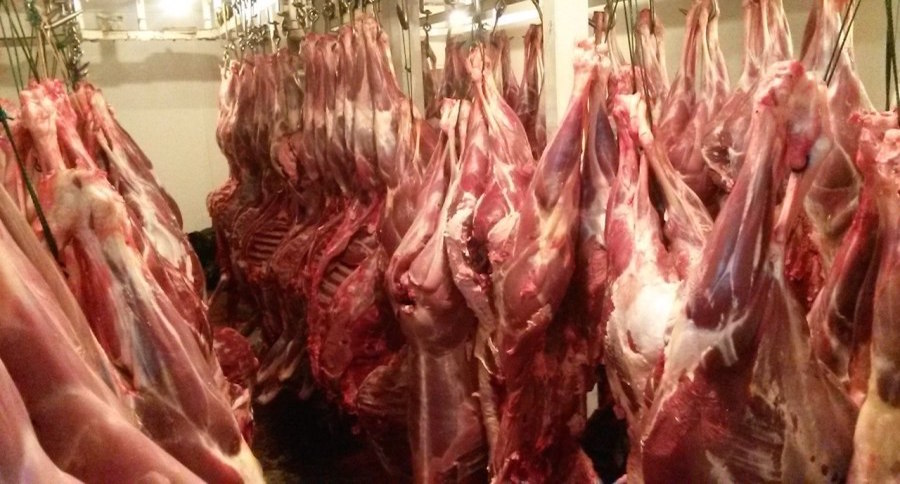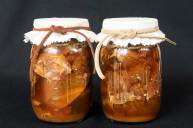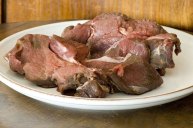Here are the seven things that a good deer processor does to keep your business.
As deer hunters we found out a long time ago what a rite of passage that it was to butcher our own hard-won deer, but not every whitetail hunter has the time or the place to do it. That's where a good deer processor comes in.
Deer processing is a time-honored way for many in the outdoor world to share their skills with the rest of the hunting community. Venison is arguably our favorite wild game meat, coupled with the fact that deer meat can be made in so many delicious ways.
Shooting your own deer and field dressing it is one thing, but skinning it, creating boneless steaks, and processing an entire hindquarter is not for everyone. Since we all want the most out of our own meat, a solid deer processor is a must.
Once you drop off your deer, you want to know that it is in the hands of someone who cares about it as much as you did while hunting it. The only time that you really know what you've gotten yourself into is when you actually pick up your venison.
Needless to say, you don't want to be worrying whether or not it's even yours.
Here are five things to consider before you drop off your best deer for wild game processing, and how to answer a few questions before you do.
1. Word of Mouth
Before a butcher ever cuts into your meat, did you talk to someone who has used them before? Deer hunting season only comes around once a year, and we put our heart and soul into it. A few well-placed phone calls or text messages can make all the difference.
Did they seem happy to oblige their customers, or were they hard to even contact? How soon did your friends receive their meat, and did they feel that it was a reasonable amount compared to the size of the deer? Remember that deer processors are people too, and they understand the questions that they field from deer hunters. It's your responsibility as a hunter to know some of this information yourself, such as their price compared to other butchers in the area.
Acting like you've been robbed when in reality you're getting the correct item will only serve to make you look irresponsible and uninformed.
2. Vacuum Seal or Freezer Paper?
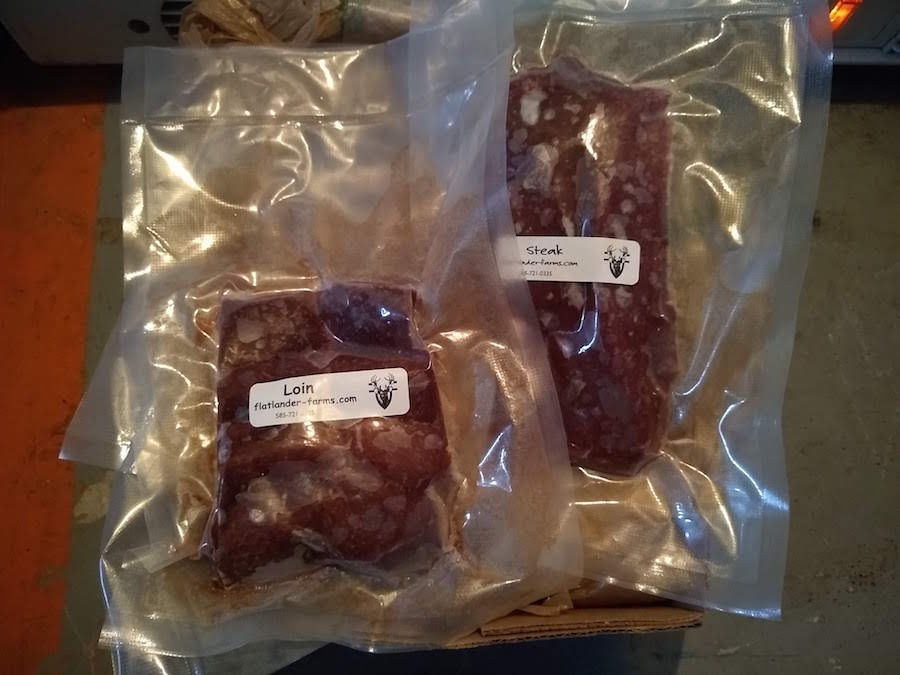
Craig Raleigh
First off, before any of us had access to a professional grade vacuum sealer, we all used freezer paper, and sometimes even plastic baggies. The difference being the obvious length of time that your valued deer meat lasts in its frozen state to that of meat simply wrapped and then placed in the freezer.
For some of us, venison just doesn't last all that long anyway, but that doesn't mean you should settle for less. For many big game hunters, vacuum sealing is the only way to go, but the fact that butcher paper has been around for so long should tell us that it still has a place for our hard-earned meat.
A butcher that vacuum seals your meat—for the same or nearly the same price—is worth their weight in backstraps. Maybe the only issue that you may have with this process is this: Do they leave the bone in?
3. Bone In or Bone Out?
Having the bones in your meat can be a point of contention for some, and for others it is completely normal. Processed deer meat with the bone still in it can possibly puncture the plastic that it was vacuum sealed in, rendering it susceptible to premature freezer burn.
Obviously roasts, such as the shoulder, are a part of the deer that many hunters desire and come replete with the skeleton that it was born with. Since many of us feel that the bones and fat can have a somewhat rancid flavor to them, we are careful to see that all of the bone has been removed.
The fact is, if you do not care for any bone in your meat, you need to ask or find out ahead of time if your prospective processor gives his client a boneless final product.
4. Is There Hair in There?
You've just harvested a wild animal that has a coat that, well, you can make a coat out of. The bottom line is that your deer processor is busy at this time of the year, and while that's no excuse, there may be some leftover hair on your meat when you ultimately open the package.
Maybe the better question is how much? Are your steaks clean for the most part, or are there signs of deer hair inside of more packages than not? This is a signal of whether or not your butcher takes the time to sweat the small stuff.
Remember, they're processing a lot of deer at the same time, so chances are you're going to see some small amount of the hair that your deer came in with.
5. Do They Provide a Cape?
This may be a moot point, but it goes without saying that if you harvested a wall hanger, you're going to want to put it on the wall! Maybe the more pertinent question should be: How much for a cape?
Does your processor charge a big fee or just a standard one? Some deer processors offer free processing with a head mount (not the other way around) if they are a taxidermist, while others simply charge you for a cape that is taxidermy ready. If they do not even offer it, you may want to keep looking.
On another note: since many of us only want the "horns," what does your processor do to get them? What I am saying is this: many years ago my favorite butcher said that he felt it necessary to clean his bone saw each time he used it to cut the antlers from the head of a deer—to avoid the possible spread of disease such as rabies in the brain tissue—making it a time consuming process to do. Because of this, he ultimately dedicated one saw for the use of antler cutting. There was a butcher that went the extra mile to keep hunters happy!
6. Do They Have a Freezer?
It is not beyond reason that in some years the weather does not provide the fall and early winter conditions that we so look for in deer hunting season. With that in mind, if a processor has your deer for more than a couple of days, can he keep it from spoiling?
By my conservative estimate I would say that most deer processors have such facilities, but there's only so much room. Due to the sheer expense of it, they can only fit so much. Do they then take numbers? In other words, if they have more deer than they can process, do they stop taking them until they are caught up?
Chances are that if a processor has a freezer available, they might be more expensive to hire and you may be back in your garage trying to hang your animal from the rafters. Since many processors have at least a refrigerator, it stands to reason that they can at least keep your processed meat from spoiling, but when you get the call, go and get it without delay.
7. Specialty Meats
In this day and age of deer processing, more and more of them are offering specialty meat dishes and we hunters are (pun intended) eating it up. The list that these abattoirs come up with is as endless as our desire to eat them. They can include jerky, summer sausage, bologna, snack sticks, bratwurst, Italian and Polish sausage, and even cheddar breakfast sausage!
It may not be so much does your prospective butcher offer these things, as much as it is how does it taste and how much does it cost extra? This will take you back to the beginning and word of mouth. If your buddy has got it, you want to know where and how much.
8. Bonus: Does Your Processor Take Donations?
Many states and provinces offer donations of unwanted or extra venison to organizations such as New York's Venison Donation Coalition, Inc. Having this for some hunters who do not have the space or simply want to help those in need is a saving grace. It shows the care we all have as a hunting community for those who struggle to make ends meet.
We don't think that anyone has ever taken one look at a deer and gotten hungry, but it stands to reason that the best part of the deer hunting experience is after—whether from the tailgate of a truck or back at camp—we get it back and start to think about all of the possibilities.
And almost all of this discussion will take place around the dinner table: the place where we all give thanks for all the blessings of the harvest.
Looking for a little more? Follow my webpage, or on Facebook and Twitter.
NEXT: HOW TO PROPERLY VACUUM SEAL GAME MEAT WITH STEVE RINELLA
WATCH
